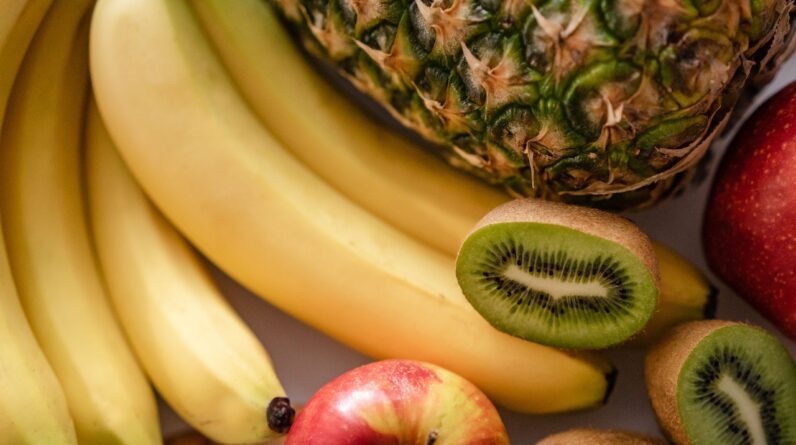
Introduction
Are you seeking methods to shed off some pounds and maintain a healthy lifestyle? If yes, then you’re in the right place. This guide will reveal some scientifically proven methods to help you achieve your weight loss and health goals.
The Importance of a Balanced Diet
Role of Nutrients in Weight Loss
A balanced diet is crucial when it comes to weight loss. Each nutrient plays a different role – proteins keep you full, fibers help with digestion, and good fats provide you with the necessary energy. By incorporating the right balance of these nutrients, you can support your body’s overall health and aid in weight loss.
Tips to Maintain a Balanced Diet
So, how do we ensure a balanced diet? Begin by including a variety of foods in your meals. This ensures you get all the necessary nutrients. Try meal prepping and include lots of fruits, vegetables, lean meats, and whole grains.
Regular Exercise
Benefits of Physical Activity
Exercise is a key part of losing weight and staying healthy. It boosts your metabolism, aids in burning calories, and strengthens your heart, bones, and muscles.
Types of Exercises for Weight Loss
From cardio and strength training to yoga and Pilates, there are numerous exercises you can do. Start with something you enjoy and gradually challenge yourself as your fitness level increases.
Importance of Hydration
How Water Aids in Weight Loss
Hydration is often overlooked in weight loss, but it’s vital. Drinking water helps to cleanse your body, keeps you full, and even boosts your metabolism.
Best Practices for Staying Hydrated
Always carry a water bottle with you and aim for at least 8 glasses a day. Swap out sugary drinks for water or herbal tea.
The Power of Good Sleep
Sleep and Weight Loss
Quality sleep is an unsung hero of weight loss. It rejuvenates your body, helps to regulate hunger hormones, and even curbs cravings for unhealthy foods.
How to Improve Your Sleep Quality
Aim for 7-9 hours of sleep per night. Make sure your sleep environment is calm and dark, and try to keep a regular sleep schedule.
Mindful Eating
Understanding Mindful Eating
Mindful eating is about being present while eating, noticing the tastes, textures, and flavors, and listening.
Implementing Mindful Eating
To practice mindful eating, start by reducing distractions during meals. Pay attention to your hunger and satiety cues, eat slowly, and appreciate each bite. This practice can help control overeating and enhance your relationship with food.
Keeping Consistency and Patience
Why Consistency Matters
In weight loss, consistency is more effective than intensity. It’s not about extreme dieting or exercise routines, but making small, sustainable changes to your lifestyle that you can stick to.
Patience in Your Weight Loss Journey
Remember, weight loss isn’t a race, it’s a journey. It requires patience and self-love. Celebrate your small victories and don’t get disheartened by slow progress. Every step you take brings you closer to your goal.
Conclusion: A Healthy Journey, Not a Quick Fix
Losing weight and staying healthy isn’t about quick fixes or drastic measures. It’s about embarking on a journey that enhances your overall health and wellbeing. By incorporating balanced nutrition, regular exercise, good hydration, quality sleep, mindful eating, and most importantly, consistency and patience into your lifestyle, you can achieve sustainable weight loss and improved health.
Frequently Asked Questions (FAQs)
1. How quickly can I lose weight?
It depends on various factors such as your current weight, diet, activity level, and more. However, a safe rate of weight loss is about 1-2 pounds per week.
2. Is it necessary to join a gym for weight loss?
Not necessarily. There are many exercises you can do at home or outdoors. The key is to find an activity you enjoy and can maintain regularly.
3. Can I lose weight without changing my diet?
While exercise is important, diet plays a significant role in weight loss. You can’t out-exercise a bad diet, so it’s important to eat healthily.
4. How much water should I drink a day?
The general recommendation is about 8-10 glasses a day. However, this can vary based on your activity level, climate, and more.
5. Can I eat junk food and still lose weight?
While it’s okay to have a treat occasionally, regularly eating high-calorie, low-nutrient foods can hinder your weight loss efforts. It’s best to stick to a balanced diet for the most part.
6. What is the role of protein in weight loss?
Protein is essential in weight loss because it can help you feel full longer, thus reducing hunger and cravings. Additionally, protein has a higher thermic effect, meaning your body uses more energy to digest it compared to fats and carbohydrates.
7. How much exercise is necessary for weight loss?
The American Heart Association recommends at least 150 minutes of moderate-intensity or 75 minutes of high-intensity exercise per week for overall cardiovascular health. For weight loss, you might need to do more and ensure you’re also maintaining a calorie deficit through a balanced diet.
8. Can I lose weight by dieting alone?
While it’s possible to lose weight through diet alone, it’s generally not recommended as combining diet and exercise is more effective for weight loss and overall health. Exercise helps to burn calories, improve cardiovascular health, and build muscle mass, which can boost your metabolism.
9. Does sleep really affect weight loss?
Yes, poor sleep has been linked to increased hunger and cravings, as well as a higher risk of obesity. Quality sleep is important for various aspects of health, including weight management.
10. What are some healthy snacks for weight loss?
There are many healthy snack options that are good for weight loss. These include fresh fruits, vegetables, nuts, seeds, yogurt, cottage cheese, hard-boiled eggs, and whole-grain crackers.







